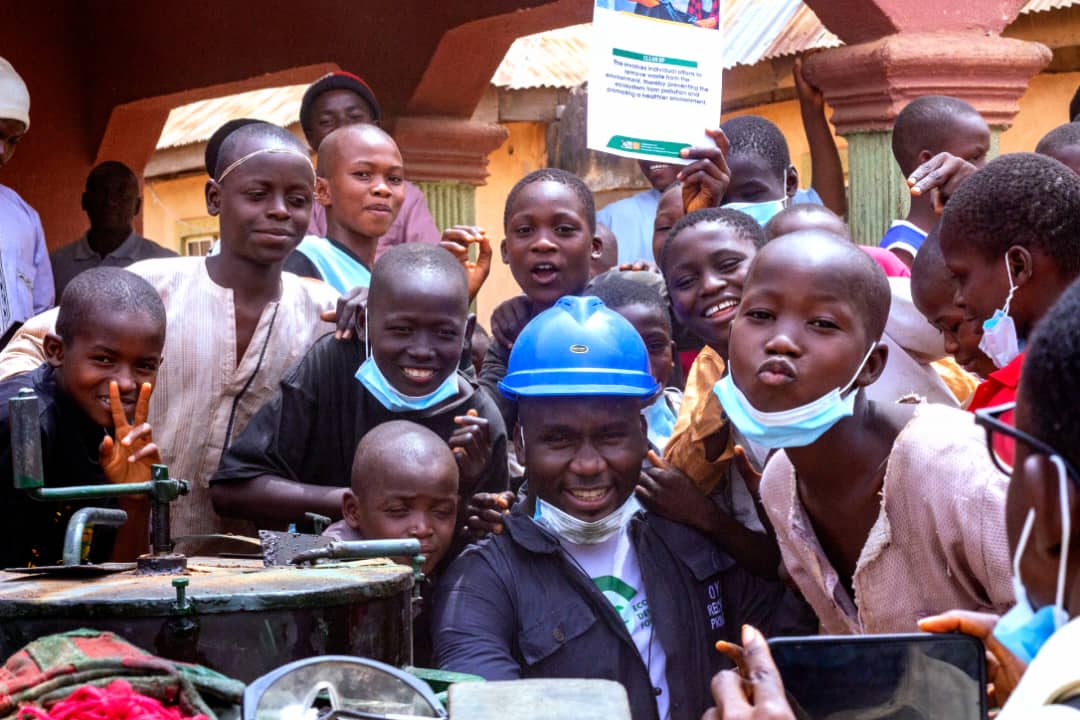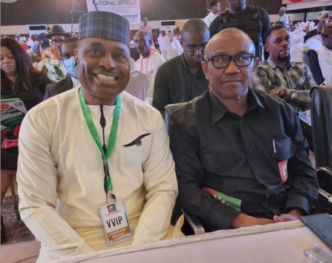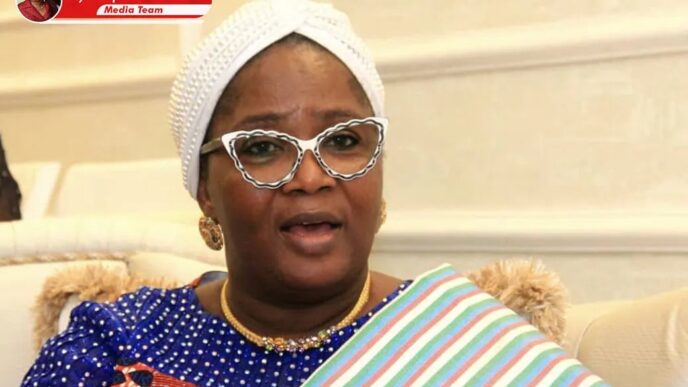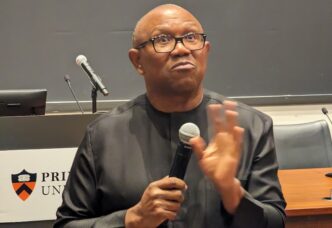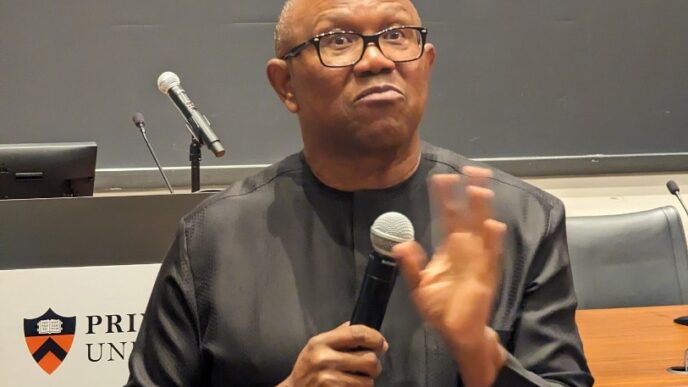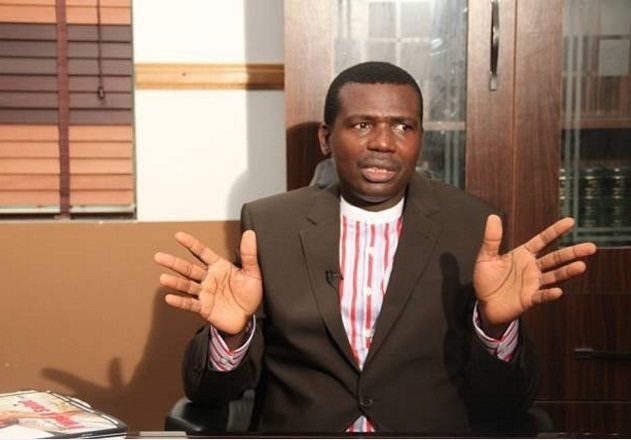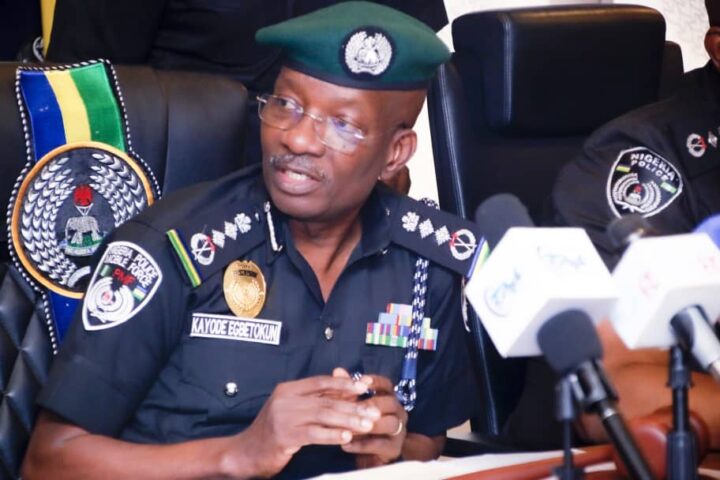Aliyu Sadiq (wearing a helmet in the middle) training out-of-school children on plastic recycling and waste management in Lafia, Nasarawa state
The concepts of climate change and circular economy may seem implausible, especially in this part of the continent where poverty and stringent government policies stifle novel innovations that offer environmental solutions. Aliyu Sadiq, chief executive officer (CEO) of Ecocyckle, a youth-led social enterprise, seems to have cracked the solution to that.
Born in Jos, the capital city of Plateau, Sadiq had his elementary education in the cold city after which he moved on to study geography and environmental management at the University of Abuja. What he learnt at the university shaped his decision to become an environmentalist.
He would later pick up an interest in environmental conservation, which he achieved with Ecocyckle, which he founded in 2020 during his National Youth Service Corps (NYSC). With only four volunteers, he managed to grow to over 150 youths currently.
Although his ideas were considered “alien” because of how innovative they were, Sadiq said an average Nigerian did not see the need to prioritise his initiatives, which made him fund some of these ideas to keep them afloat.
Advertisement
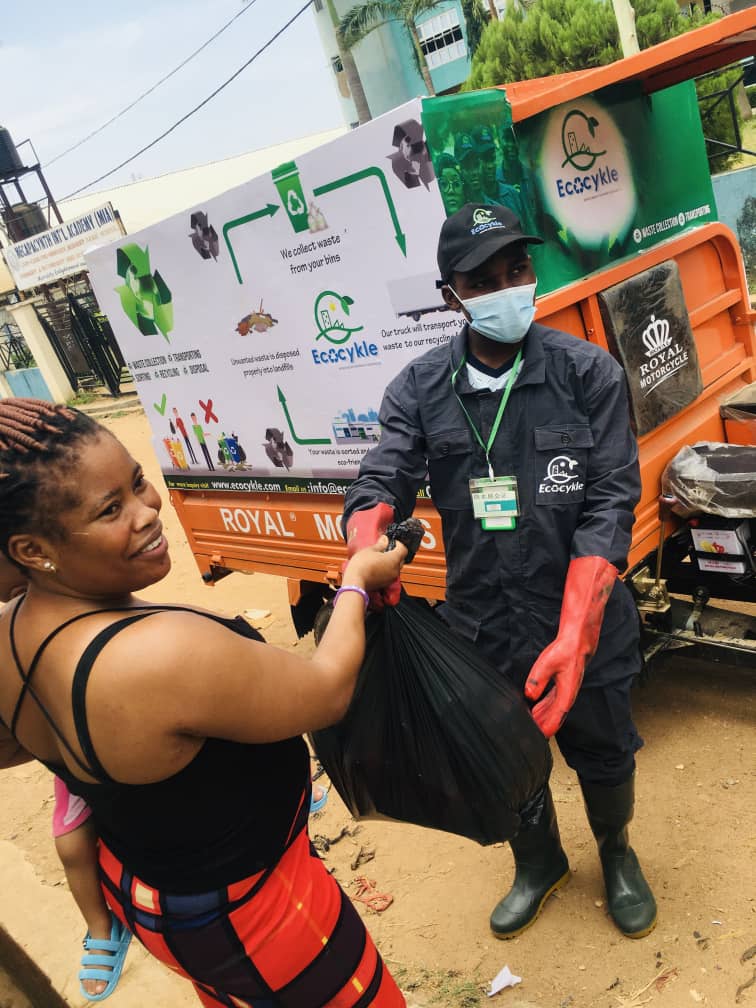
“Looking into the enormous environmental problems that we are facing in Nigeria—the issue of waste pollution, climate change, as well as its ecological benefits—was our key burner to proffering solutions that can create jobs and inspire other young people,” Sadiq said.
“We wanted a system where we will provide solutions that will solve environmental problems in areas of interest—waste pollution and climate change—and also make money to do a lot of community impact work for free, such that it can impact society and the environment. That was the factor that made us look into the perspective of a social enterprise, despite our interest in development.”
Most young graduates of Sadiq’s age would perhaps aim for one of the “big four companies” after graduating from the university. But here he was driving change through plastic recycling and waste management, with little support from his family, who may have queried the path he chose for himself.
Advertisement
Sadiq believes that one of the greatest ways to build climate action among the youth is through education; hence, the drive to launch the Play Learn and Act Now (PLAN) game in 2023 to make climate education more fun for the younger generation.
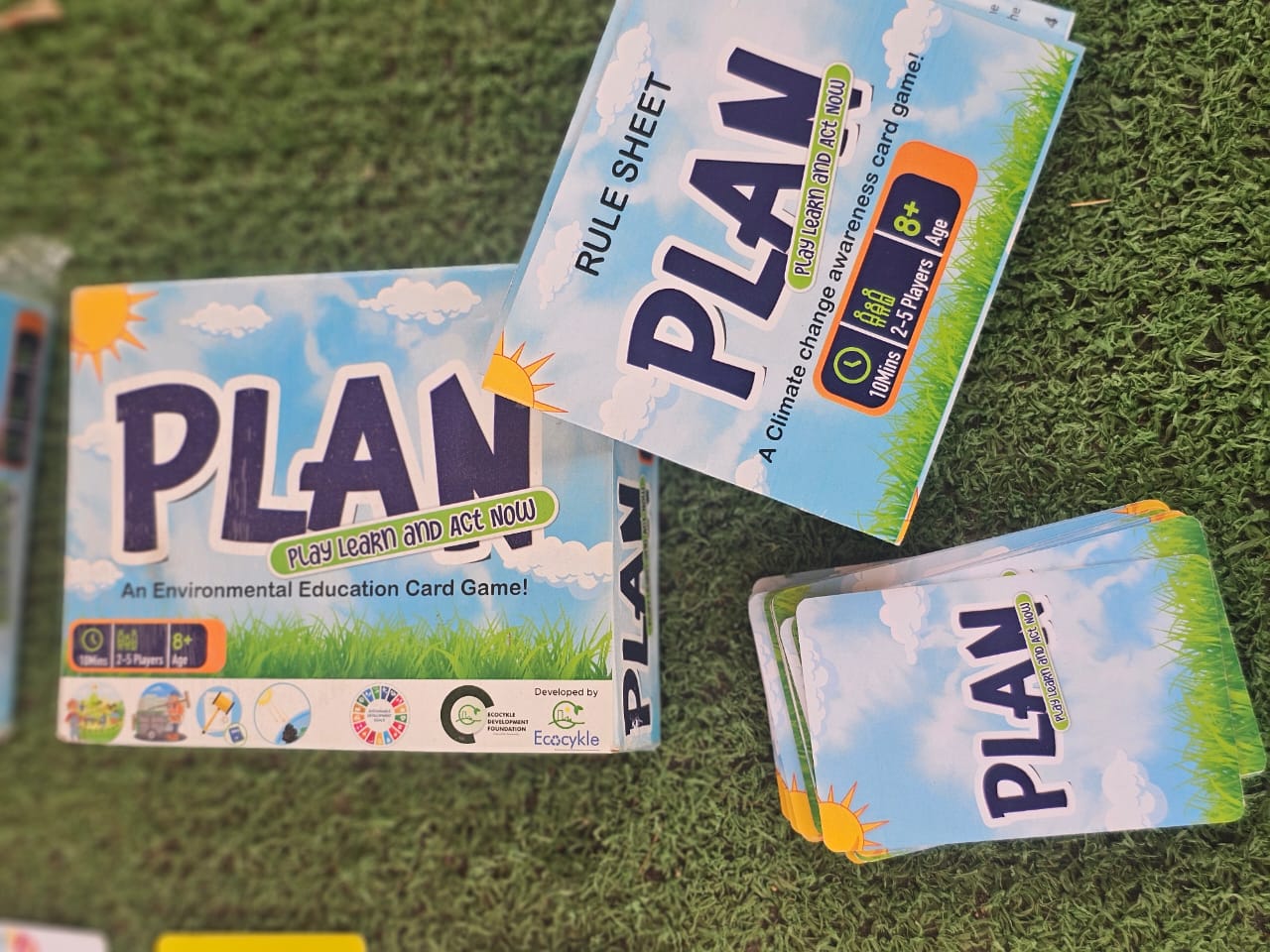
The game is played by using a card that has a pictorial solution to the problem presented by an opponent. These problems and solutions are thoughtfully blended in alphabets and numbers to enable young people to seek solutions to the problem onboard.
Sadiq believes that by doing this, he is imbibing in the players the consciousness of the various solutions to the major environmental problem facing mankind while still having fun.
He boasts of having the games in about six African countries and has donated to over 20 schools. However, he fears that financial constraints may hinder the popularity of the game, even as he intends to digitalise the game to enable it to reach every part of the world.
Advertisement
“One of the greatest ways to gather momentum and build collective action amongst young people is through education. So, we saw the need for inventing a climate action awareness game, which we call PLAN game — Play Learn and Act Now, which we launched in 2023,” the environmentalist noted.
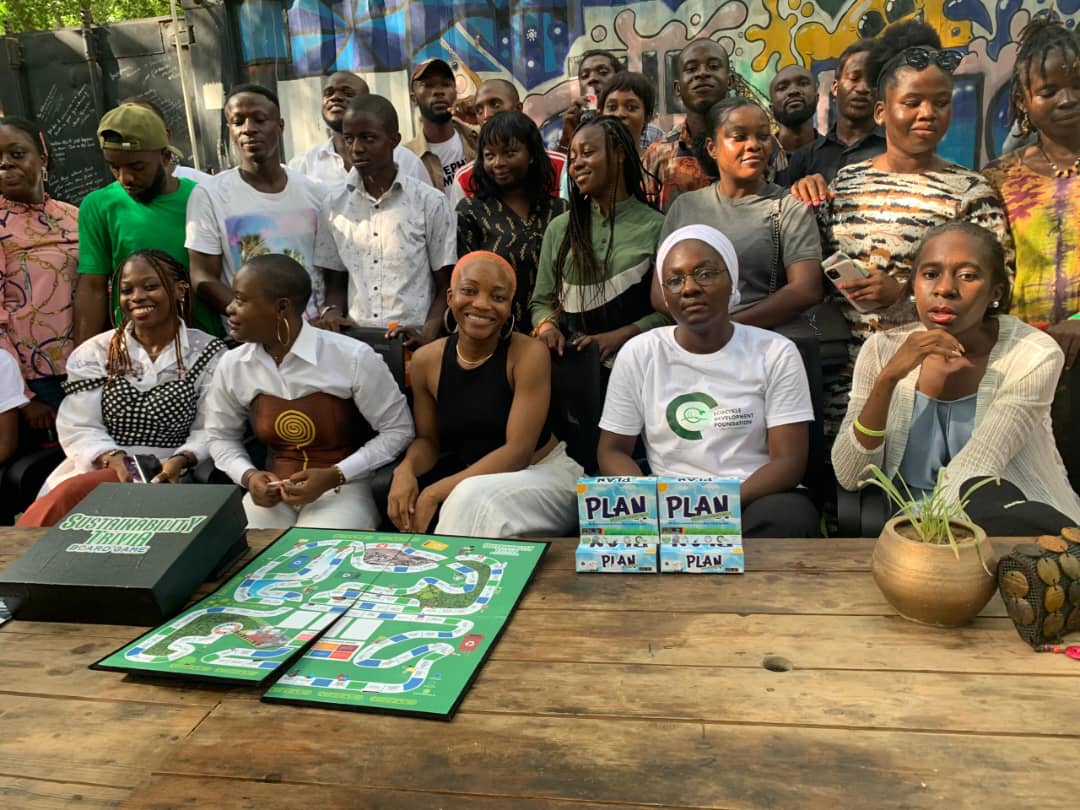
“The idea was to cut the conventional way of engaging and educating young people on climate change and make it more interactive and innovative. This way, young people can play a game and learn everything they need to understand about how to take action, dispose of their waste, what air pollution is, how to stop water pollution, how to plant trees, and how to nurture them.
“For most hangouts happening in Abuja, the PLAN game is integrated as part of it, and it is usually one of the most interesting parts of any event.
“These games are currently in about five countries: Nigeria, Ghana, Cameroon, Kenya, the UAE, and Liberia, amongst others. In Nigeria, we have donated over 20 of these games to about 10 schools, and we have been trying to ensure that these games get to as many young people and they play them as many times as possible, get to understand climate action, and take action.”
Advertisement
TURNING PLASTIC WASTES TO BRICKS
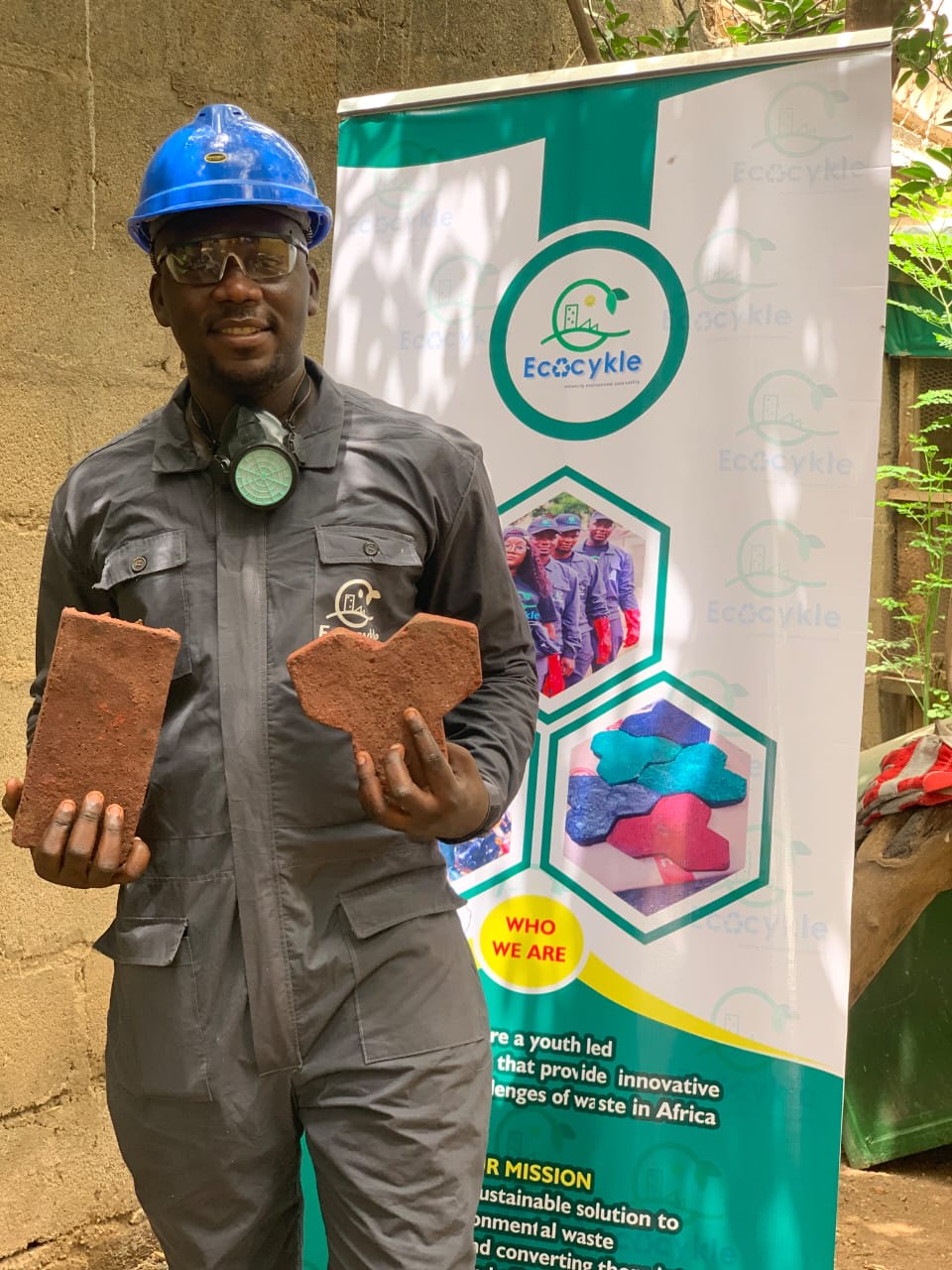
With about 5.96 million tons of plastic waste going to various dumpsites in Nigeria, Sadiq saw the need to repurpose waste and reduce pollution. Hence, he began researching how to produce sustainable bricks from plastic.
Advertisement
After several trials and errors, he devised ecobricks made out of plastic waste and sand. He would later come up with a less tedious approach to producing the bricks and move ahead to teach students how to do the same more effectively.
Although Sadiq would love to see his ecobricks commercialised to enable him to generate money to impact more communities, he said low demand, heavy taxation, and regulatory bottlenecks hindered him from actualising such a dream.
Advertisement
Desperate to impact more communities, in December 2022, he launched a pet-eco-friendly toilet, built with over 6,500 pet bottles with the help of students, to address the issue of open defecation in the state.
“Beyond the interlocks made from plastics, we have also gone ahead to build toilets from plastic bottles. We engage students in the school, trying to address two problems—the problem of plastic pollution in their community and open defecation. There are two pollution problems in the school,” Sadiq added.
Advertisement
“The students go to the bush to defecate because they have dilapidated toilets. So, it was a problem we identified, and we came up with this intervention and built that toilet from scratch for free for the school. It was just our way of contributing to the development of the community and also getting to inspire more young people to look towards solutions and to believe that everything they consider waste can become something. That’s like another masterpiece of advocacy and awareness beyond just the solution we are creating.”
REACHING OUT-OF-SCHOOL CHILDREN
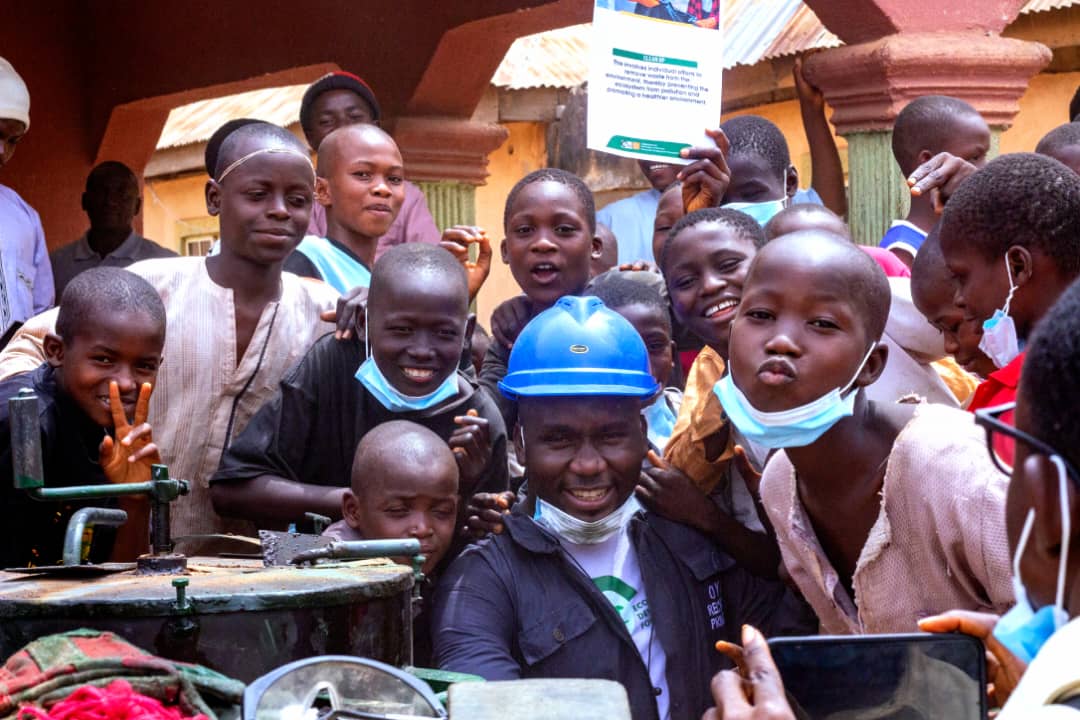
The environmentalist saw the need to extend his impact to the Almajiri children, who are not privileged to attend conventional schools. There, he taught them how to make household items like stools and furniture with plastic. This idea birthed the OYA recycle initiative, which simply means “Let us recycle now.”
“Our focus has been so much in schools, and then we thought there was another problem that was being overlooked: inspiring the creativity of young people who are not in these conventional schools to contribute to addressing environmental problems,” he said.
“We thought this was a goldmine, that if we were able to inspire these young people, they could leverage their creativity to even develop more groundbreaking ideas. Then we launched OYA Recycle.
“Through that, we reached out to children in our community, teenagers, particularly those who do not go to school. Most of them attend religious schools like Islamic schools; they call them Almajiri, who only have informal education and all of that.”
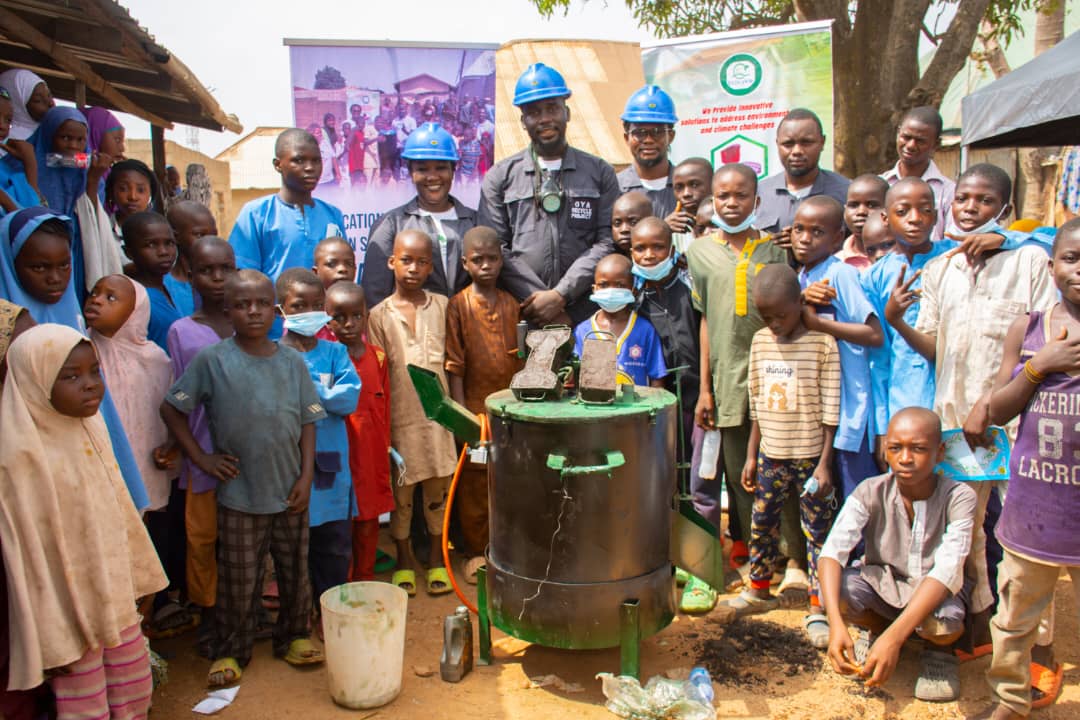
Just like every other business, Sadiq has been able to leverage the power of partnerships, although he is sometimes faced with the challenge of protecting his ideas from being hijacked by intending partners.
“I would say, because most of the ideas we come up with are innovative, we were paying to provide service. That was enough to be discouraging. But I think we did that for about three or four months before we started getting out. We got the same amount that could only cover the services without profit, and eventually, the numbers get pulled up.” he said.
“Then again, the other thing is funding, which is a major challenge. For instance, for the toilets, we used plastic bottles. We made a lot of proposals to get to most schools that needed this solution, and we needed to reach out to more. Also, for the PLAN game initiative, this is really sad to say. We started fundraising in February, but we have not been able to raise even 20% of the target we are looking for. I’m sure this is similar to a lot of other youth-led organisations.”
SMART MOBILE BIN INITIATIVE
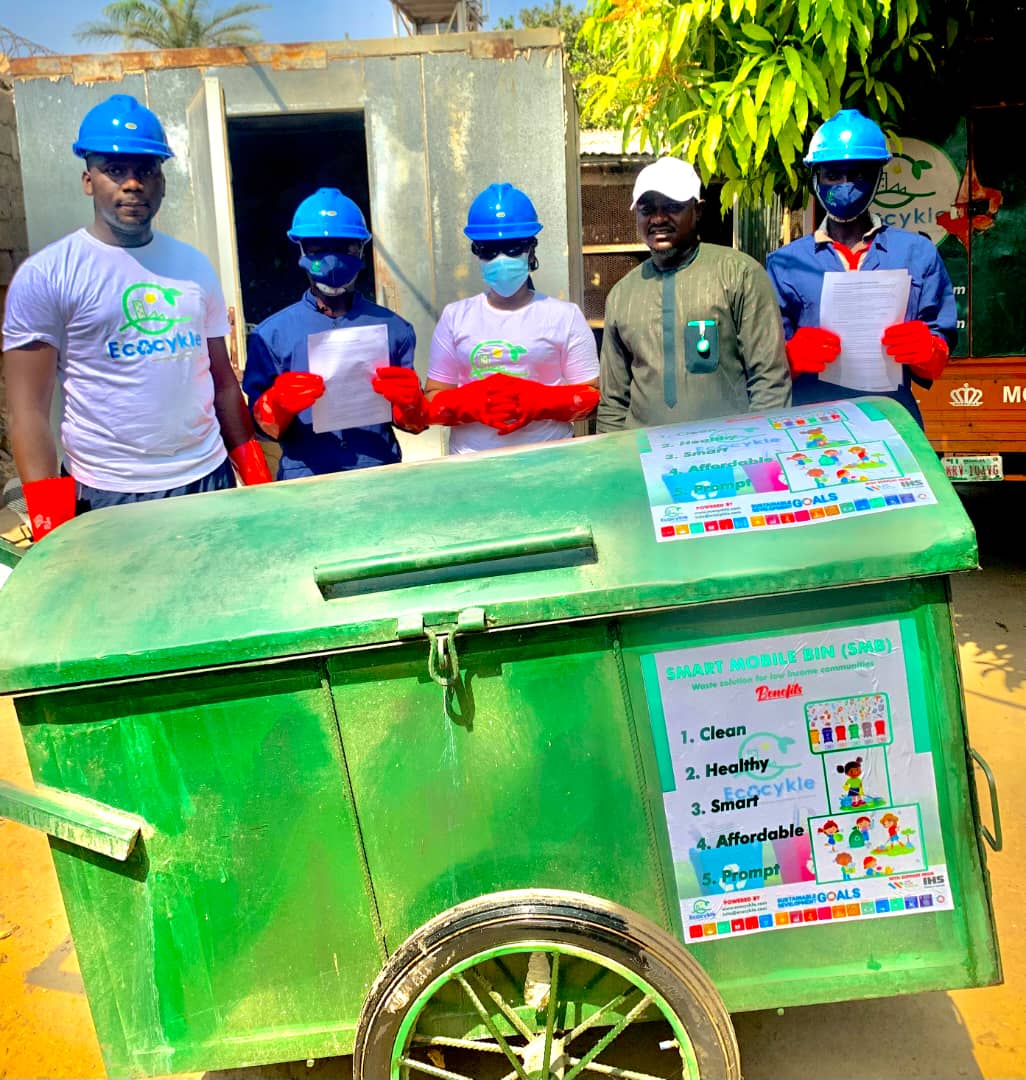
Nigeria’s plastic pollution is increasingly harming its environment; with about 2.5 million metric tons of waste produced annually, it ranks ninth as one of the highest contributors of plastic waste globally. With this in mind, Sadiq decided to provide weekly waste collection for households with no access to proper waste disposal systems through his “Smart Mobile Bin”.
Although the initiative was met with low acceptance by community members who preferred to dispose of their waste indiscriminately, it did not deter him from enlightening the locals about the impact of pollution on the environment.
Presently, he boasts of having over 100 households that have identified with his Smart Mobile bin.
“We have a community waste management system that we have leveraged, helping us recover over 300 tons of waste. We have about 100 households that are registered to our waste recovery scheme,” he said with some sense of accomplishment.
“We provide weekly waste collection for these households, rather than disposing of their waste, burning it indiscriminately, or throwing it into the next river, which can cause flooding or pollution. We recover this waste every week. We have a partnership with the Nasarawa Waste Management and Sanitation Agency, whereby the waste is sorted for all of the recyclables, and then it is properly managed.
“Again, in the process of this, we identified the need of communities that do not have access roads where our tricycles can enter. So, we came up with a solution called Smart Mobile Bins. This is more of the conventional waste truck; but this time, we modified it to become eco-friendly, and airtight, and to prevent pollution on the ground and in the air during collection and disposal in our recovery facilities. So, this allows houses that do not have access to roads to receive these services to help them not dispose of their waste in communities at dump sites.”
On June 25, the federal government, in a bid to tackle the increasing menace of plastic pollution in the country, banned the use of single-use plastics in ministries, departments, and agencies (MDAs). While this is a move in the right direction, Sadiq said such an initiative would have more impact if other alternatives were made easily accessible to the masses.
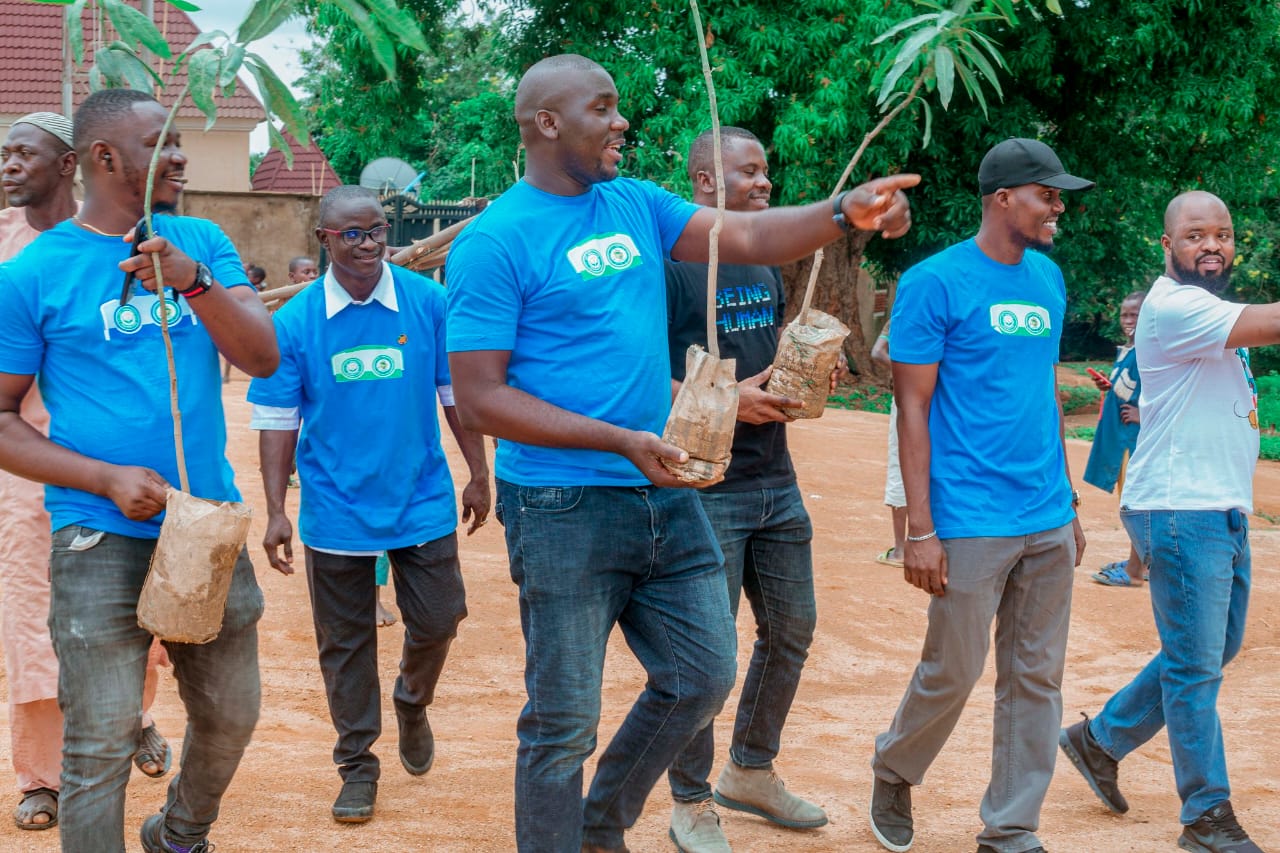
“My major debate is around the alternatives. So, I think the idea of banning is a good one — banning the most polluting plastics and those with the least recyclable value is a good idea,” he noted.
“But doing that, the government should ensure that an alternative or subsidy is provided, so that people can easily change their lifestyle without having to see it as a burden.”
Above all, Sadiq wants more synergy with the federal government, particularly the ministry of environment, since his enterprise has been at the forefront of training young people in climate action and circular economy.
“One area we would really love to partner with the government in is promoting climate literacy amongst young people in Nigeria. We have developed an innovative solution for this, which is the climate change game,” he said.
“We want the government, especially the ministry of education and ministry of environment to adopt this as a way that we can replicate it across all schools in Nigeria. This will again be another approach of the government towards promoting climate literacy.
“We are looking forward to a partnership with the ministry of youth and sports, and ministry of labour and productivity to see how we can train more young people across Nigeria.”
Add a comment
